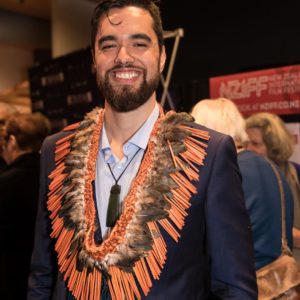Merata : How Mum Decolonized The Screen
The sudden death of pioneering Māori filmmaker Merata Mita in 2010, led her son on a journey to uncover a story of mother’s love that changed the landscape of indigenous films forever. Indeed, she opened doors for indigenous voices we celebrate today; Warwick Thornton, Taika Waititi, Sterlin Harjo and Zoe Hopkins to name a few.
Merata was the first Māori woman to write and direct a narrative feature in 1988 (Mauri). Her political films denounced abuses Māori people were suffering from in the 80’s and often divided the country. She became an international hero but was considered a domestic nuisance.
She worked across the globe for the BBC, National Geographic and directed films in Hollywood, interviewed Robert Mugabe and followed Louis Farakhan; she was fearless.
10/4 20:00
Directors
Heperi Mita
Born into a movie making family, a career in the film industry was inescapable for director Heperi Mita (of Māori Ngāti Pikiao and Ngāi Te Rangi) – not that he didn’t try. His media career began in 2007, working in online journalism for the Pulitzer prize winning Las Vegas Sun newspaper. He returned to his home country of Āotearoa / New Zealand in 2011, following the death of his mother – indigenous film making pioneer Merata Mita.
It was here that he began his career as an archivist with Ngā Taonga Sound & Vision, the nation’s film archive. The combination of these experiences culminated in his directorial debut with documentary Merata: How Mum Decolonised the Screen which premiered at the 2018 New Zealand International film festival.
Heperi was recently awarded the ‘2018 Pacific Islanders in Communication Trailblazer Award’ at the Hawaii International Film Festival.

